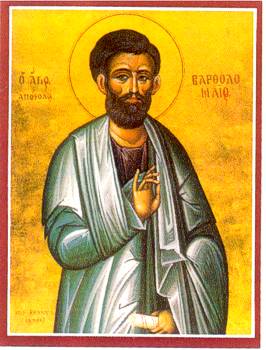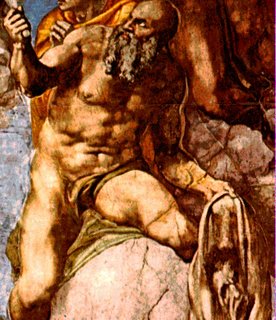Instructions On Easter
What is the festival of Easter?
Easter, in Latin Pascha, signifies passing over, and has the following historical origin: Under Pharao, King of Egypt, the Jews in that country groaned under intolerable bondage. God had mercy on His people, and the hour of deliverance came. By His command the first-born of all the Egyptians was killed by an angel. The Jews had been ordered by God to be ready for emigration, but first to kill a lamb, eat it in their houses in common, and sprinkle the doorposts with its blood. And the angel of death, by order of God, passed the doors sprinkled with the blood of the lamb, and did no harm to any child of the Israelites, whilst he slew all the first-born sons of the Egyptians. In grateful memory of this passing their doors, the Jews observed the festival of Easter, the Pasch, or Passover. After the death of Jesus, the apostles introduced the same festival into the Church in grateful remembrance of the day on which Jesus, the true Easter Lamb, took away our sins by His blood, freed us from the angel of eternal death, and passed us over to the freedom of the children of God.
Where, during this time, was Christ's holy soul?
In Limbo, that is, the place where the souls of the just who died before Christ, and were yet in original sin, were awaiting their redemption.
What have we to expect from the resurrection of Christ?
That our bodies will rise again from death. (Romans 8:2) For if Christ our head is alive, then we His members must also become reanimated, because a living head cannot exist without living members.
What is meant by the Alleluia sung at Easter time?
In English Alleluia means Praise the Lord, and expresses the joy of the Church at the Resurrection of Christ, and the hope of eternal happiness which He has obtained for us.
Why does the Church on this day bless eggs, bread, and meat?
To remind the faithful that although the time of fasting is now ended, they should not indulge in gluttony, but thank God, and use their food simply for the necessary preservation of physical strength.
At the Introit the Church introduces Christ, her Head, as addressing His Heavenly Father in these words:
INTROIT I arose, and am still with thee, alleluia; thou hast laid thy hand upon me, alleluia: thy knowledge is become wonderful, allel., allel. Lord, thou hast proved me and known me: Thou bast known my sitting down arid my rising up. (Ps. CXXXVIII.) Glory be to the Father, etc.
COLLECT O God, who on this day, through Thine only-begotten Son, didst overcome death and open unto us the gate of everlasting life; as by Thy prompting grace Thou dost breathe on the desires of our hearts, so do Thou ever accompany them with Thy help. Through &c.
EPISTLE (1 Corinthians 5:7-8) Brethren, purge out the old leaven, that you may be a new paste, as you are unleavened: for Christ our pasch is sacrificed. Therefore let us feast, not with the old leaven, nor with the leaven of malice and wickedness, but with the unleavened bread of sincerity and truth.
EXPLANATION St. Paul here exhorts us that we should at this time remove by a good confession and true penance the leaven, that is, the sins we have committed, and partake of the Paschal lamb in holy Communion with a pure, sincere heart; as the Jews were on this day commanded to eat the Paschal lamb with unleavened bread, abstaining on this day from the old leaven.
During the octave of this festival repeat often with the Church: "Alleluia! Praise to the Lord, for He is good, and His mercy endureth forever. Alleluia! This is the day the Lord has made, Alleluia! Let us rejoice therein, Alleluia! Our Paschal Lamb is Christ who sacrificed Himself for us, Alleluia!"
GOSPEL (Mark XVI. 1-7.) At that time, Mary Magdalen, and Mary the mother of James and Salome, bought sweetspices, that, coming, they, might anoint Jesus. And very early in the morning, the first, day, of the week, they come to the sepulchre, the sun being now risen. And they said one to another: Who shall roll us back the stone from the door of the sepulchre? And looking, they saw the stone rolled back, for it was very great. And, entering into the sepulchre they saw a young man sitting on the right side, clothed with a white robe, and they were astonished. Who saith to them: Be not affrighted; you seek Jesus of Nazareth; who was crucified: he is risen, he is not here; behold the place where they laid him. But go, tell his disciples, and Peter, that he goeth before you into Galilee: there you shall see him, as he told you.
Why did the holy women desire to embalm the body of Jesus with slices?
Because it was the custom of the Jews to embalm the dead, and as the Sabbath was so near and the time so short that they could not do it before the burial, these pious women procured the spices, and immediately after the Sabbath, hurried in the early morning to the sepulchre, to perform this act of love. We are taught by their conduct, that true love is never indifferent or slow, and what is agreeable to God it does without hesitation.
Why did the angel send the women to the disciples, and especially to Peter?
Because the disciples were to announce the Resurrection of Christ to the whole world, and they were now much saddened, and disturbed because of His death. Peter was the head of the apostles, and on account of having three times denied our Lord, he was greatly dejected and faint of heart, and was, therefore, above all to be comforted.
What encouragement does the Resurrection of Christ give us?
It encourages us to rise spiritually with Him, and live henceforth a new life, (Rom. VI. 4.) which we do if we not only renounce sin, but also flee from. all its occasions, lay aside our bad habits, subdue our corrupt inclinations, and aim after virtue and heavenly things.
ASPIRATION I rejoice, O my Jesus, that Thou hast victoriously risen from death. By Thy triumph over death, hell and the devil, grant us the grace to subdue our evil inclinations, walk in a new life, and die to all earthly things. Amen.
INSTRUCTION It is certainly true that Christ, by His death on the cross and by His resurrection, has rendered perfect satisfaction; and effected man's redemption; (Heb. IX. 12.) but we must not imagine that there is no further need of doing penance, or of working out our salvation. For, as the children of Israel, though freed from Pharao's bondage, had to fight long and against many enemies in order to gain the Promised Land, so also must we, though freed by Christ from the servitude .of the devil, battle against our enemies to the end of our lives to obtain the promised, heavenly land, for no one is crowned unless he has properly fought. (II Tim. II. 5.) We must apply the merits of the redemption and satisfaction of Christ to our soul by the frequent reception of the holy sacraments; by imitating His virtues; by patiently bearing our trials and sufferings, and by a penitential life. The pious Angelus Silesius very appropriately writes:
"God is a Lamb that avails yon not, my Christian,
If you become not also a lamb of God.
The cross on Golgotha redeems not from evil,
If it is not also erected in thee;
The dear Christ's death aids you not, my Christian,
Until in Him and for Him you also have died:"
-- Goffine's Devout Instructions
-- Goffine's Devout Instructions








